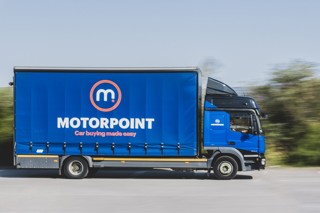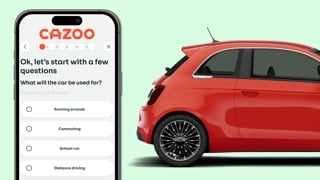More than a third (37%) of used car transactions, including finance applications, took place entirely online during COVID-19 'Lockdown 3', according to iVendi.
Data from the online motor retail software business shows that in the same period last year, the figure was less than half – just 15%.
James Tew, iVendi's chief executive, said that this dramatic increase was largely prompted by the closing of showrooms, but that it also had potential implications for the future.
“It’s worth looking at these figures in more detail,” he said. “What they indicate is that around two-thirds of sales made during the lockdown were originated using traditional remote contact methods – such as telephone and e-mail – while 37% used an entirely online process.
"This will have involved buyers using either the dealer’s web site or our Digital Deals product, which builds an online proposition for each individual.
“In our view, this shift is interesting because it is helping to create what you might call an ‘online literate’ consumer base who are relaxed about the process of buying and financing their car online.”
Tew believes that this development had a number of positive implications for both car buyers and dealers that, during the pandemic, these had probably become more apparent for both groups.
He added: “Retailers and consumers tend to widely adopt online processes when the benefits of doing so become evident and that is something that could well be happening here.”
The key advantage for car buyers shopping online is the high level of control they have and the removal of any feeling of showroom pressure. They can make decisions in their own time.
For dealers, much of the administration surrounding the buying process is passed to the consumer. This means sales staff can concentrate on selling rather than taking a customer point-by-point through the completion of a lengthy finance form, for example.
Tew said: “The question, really, is the extent to which successive lockdowns have embedded these changes permanently in the minds of dealers and buyers when it comes to the used car market, or whether it is just a direct effect of showrooms being closed. We should start to find out the answer during the next couple of months as the lockdown is eased.”
Whatever the outcome, iVendi believes that a large number of dealers have become aware of the benefits of steering customers towards self-serving during the pandemic. According to Tew, finance penetration increases when customers are given direct control.
He added: “Interestingly, the benefits of self-serving appear to have become especially apparent for smaller, independent dealerships that have only a handful of staff. They have been among the fastest and most enthusiastic adopters of our Digital Deals product, for example, because they can see clearly that it is a more efficient use of sales time.”
CarGurus’ 2021 Buyer Insight Report has found that the 63% of car buyers are now open to the idea of buying a vehicle online as a result of the impact of the COVID-19 pandemic.
The figure is up from 43% in the pre-pandemic car retail environment, it said, and came alongside data which suggested that consumers would only visit a dealership once online research had ensured that they were “extremely certain a vehicle is a good fit”.
The study concluded most car buyers (67%) would still ultimately prefer to buy their car in-store and in-person, however.


















Login to comment
Comments
No comments have been made yet.